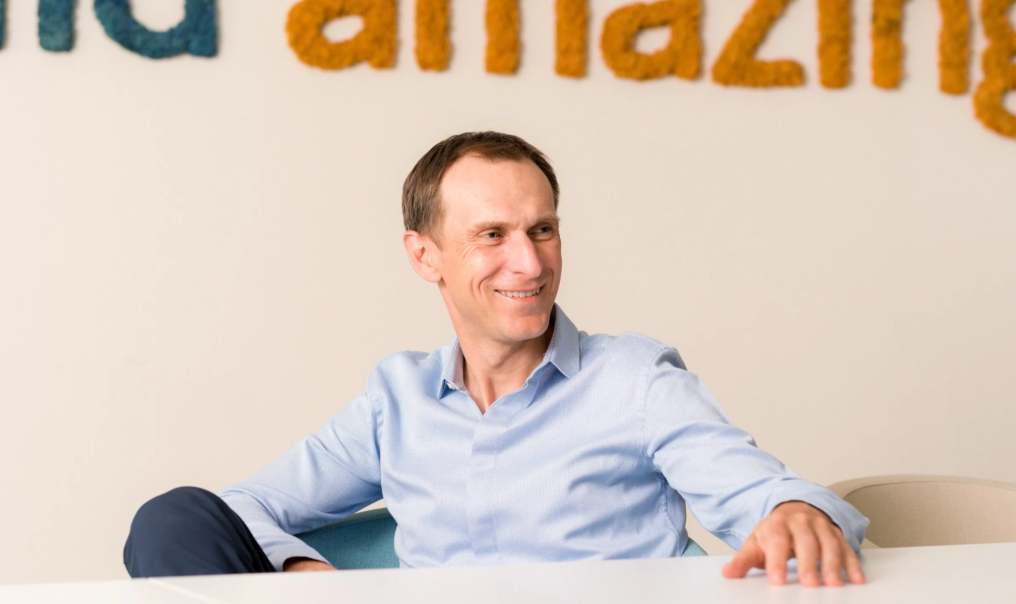While Scot Wingo, 55, describes his upbringing as vanilla, his career path has been anything but.
Scot began his entrepreneurship journey 30 years ago and led him to his current love and obsession Research Triangle Park (RTP) in North Carolina.
Located in the Raleigh-Durham-Chapel Hill region, Scot is deeply passionate about the RTP’s prospects for startup growth and works closely within the pre-seed ecosystem.
But he didn’t discover his inspiration until college.
Scot grew up in the mid-1980s in the tiny town of Aiken, South Carolina. He attended the University of South Carolina for computer engineering before transferring to North Carolina State University for his master’s degree, which was his first introduction to the Triangle area.
But once he graduated, the Southern boy opted to move to the cold and gray state of Connecticut for his first job. While he loved the startup ecosystem, he did not like working for someone else.
“After my first company, I don't think I could work for anyone anymore,” he says. “As a founder, you have low tolerance for bureaucracy and, you know, managers and that kind of thing.”
Between craving more independence and the northeast weather, it became the perfect excuse to return to the area he loved so much.
Once back in RTP, Scot’s primary goal became deciding what company he would start next.
So far, Scot’s has founded four companies and exited three. His first venture, Stingray Software, was launched in 1995 and sold in 1998. Scot took those earnings and launched AuctionRover.com, which was sold one year later followed by ChannelVisor in 2001.
Scot’s strategy often revolves around solving consumer problems without market solutions. It allows him to spot shortcomings and work to revolutionize that sector. Enter Scot’s fourth company, Spiffy, which offers on-demand car care, which he launched in 2014.
“I previously owned a couple car washes as an investment and ended up thinking that car care is an interesting area of digital service to focus on,” he explains. “I know a little bit about it. No one else is doing it.”
After 15 years in the e-commerce space, he says he was uniquely situated to see certain trends. This is especially true in the consumer world, where convincing people to break their habits can feel impossible.
“To get someone out of that habit, you have to almost be ten times better,” he says. “So I'm always thinking, what are bad experiences that you can make better?”
As he focused on building bigger and bigger companies, he learned how to ride market waves. By getting involved in trends early, you can create opportunity instead of fighting it.
Investing in the Triangle
Triangle Tweener List and Triangle Tweener Fund are passion projects for Scot – his way of giving back to the community he loves so much.
These Tweener endeavors, a nickname given by Scot to each company, began with the List, which features over 250 curated startups in the Triangle corridor. This inspired the Triangle Tweener Fund, which is a Rolling Fund that invests in 10-15 early stage companies.
Best Advice
Balance the Dream
There are some founders that give up too early. But there's another side where some founders go too far. Like, if they've spent all their savings with nothing to show for it. At some point, you may want to let go of this idea. So it kind of hurts on both sides. But I would say the success rate of early first-time founders that are super passionate about ideas is the highest one.
Interact with Consumers
One pattern I see among tech founders is that they're largely introverts. It’s sometimes hard for them to interact with customers. But in this digital world, collecting data through an app or website will never be as good as interacting with humans.
Power of Persuasion
Everything is basically selling. But I like to think of it more as persuading. You have to ask, how do I get customers excited about my product? You need to learn the best ways to persuade them to get as passionate as you. You can't get frustrated that they're not starting where you are.


.png)
.png)

